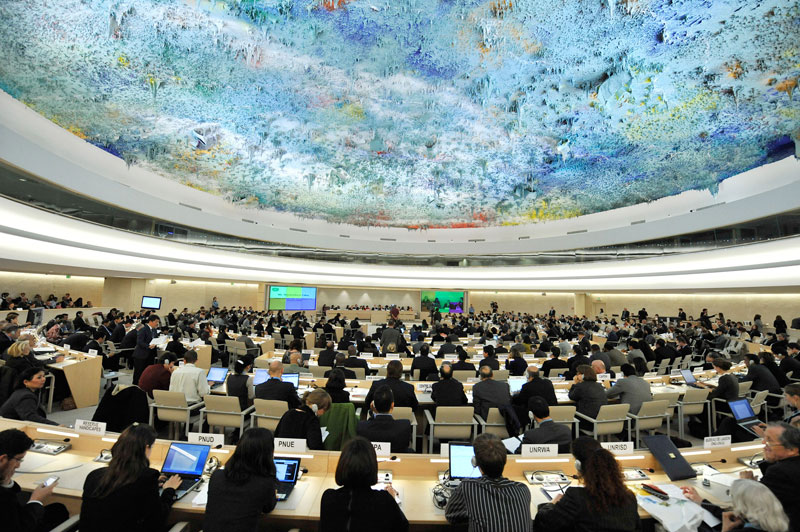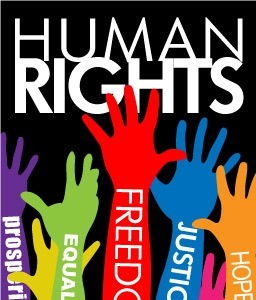
Interestingly, Philippines is not a signatory to the resolution and so is China, one of the most closely watched countries on the controversial issue of freedom of expression online. A copy of the resolution is available here.
To date, the Philippines has not released any official statement on why it did not sign the UN resolution. During the first UN panel discussion on freedom of expression last February 29, however, the Philippines was one of the large list of countries represented by China.
 Aside from the Philippines, China’s intervention was given on behalf of Algeria, Bangladesh, Belarus, Burundi, Cambodia, Congo, Cuba, Ethiopia, Iran, Laos, Malaysia, Mauritania, Myanmar, Namibia, Nicaragua, North Korea, Pakistan, Palestine, Russia, Saudi Arabia, Sri Lanka, Sudan, Turkmenistan, Venezuela, Vietnam, Uzbekistan, Yemen, and Zimbabwe.
Aside from the Philippines, China’s intervention was given on behalf of Algeria, Bangladesh, Belarus, Burundi, Cambodia, Congo, Cuba, Ethiopia, Iran, Laos, Malaysia, Mauritania, Myanmar, Namibia, Nicaragua, North Korea, Pakistan, Palestine, Russia, Saudi Arabia, Sri Lanka, Sudan, Turkmenistan, Venezuela, Vietnam, Uzbekistan, Yemen, and Zimbabwe.China wanted to maintain government intervention on the Internet, citing abuses of freedom of expression online such as terrorism, xenophobia, and racism.
Watch the video of China giving its intervention here.
Coincidentally, the Philippines House of Representatives has recently voted to pass on third and final reading the controversial House Bill No. 5808 or the Cybercrime Prevention Act of 2012. The bill is seeking to lay out stricter regulations against criminal offenses online, including provisions on online defamation.
Already, the right to freedom of expression on the Internet is enshrined in the Universal Declaration of Human rights, but there it is just implied. Article 19 of the declaration reads that “everyone has the right to freedom of opinion and expression; this right includes freedom to hold opinions without interference and to seek, receive and impart information and ideas through any media and regardless of frontiers.”
In a recital in the resolution, the UN council said that ‘the right to freedom of exression on the Internet is an issue of increasing interest and importance as the rapid pace of technological development enables individuals all over the world to use new information and communication technologies.“
Freedom of expression, according to the book ‘The Borders of Free Expression’ by Ashley Packard, refers to a bundle of rights. There is press right which pertains to both access and dissemination of relevant information; political right which protects a person from undue infringement by the state and ensures one’s active participation in civil and political matters; and human right which revolves around personal development and human dignity.
It is now known to many that the Net has already changed the dynamics of exercising and ensuring freedom of expression. Take for instance defamation, an old tort that has found a new breeding ground on the digital information highway. With the Internet, it has now become easier and faster to spread defamatory remarks. Plus, any false statement on the Web sticks around, is more pronounced and thus, do more harm.
 The key provisions of the UN resolution on human rights on the internet are below:
The key provisions of the UN resolution on human rights on the internet are below:1. Affirms that the same rights that people have offline must also be protected online, in particular freedom of expression, which is applicable regardless of frontiers and through any media of one’s choice, in accordance with articles 19 of the Universal Declaration of Human Rights and the International Covenant on Civil and Political Rights;
2. Recognizes the global and open nature of the Internet as a driving force in accelerating progress towards development in its various forms;
3. Calls upon all States to promote and facilitate access to the Internet and international cooperation aimed at the development of media and information and communications facilities in all countries;
4. Encourages special procedures to take these issues into account within their existing mandates, as applicable;
5. Decides to continue its consideration of the promotion, protection and enjoyment of human rights, including the right to freedom of expression, on the Internet and in other technologies, as well as of how the Internet can be an important tool for development and for exercising human rights, in accordance with its programme of work.-Interaksyon (July 16, 2012 PM)

No comments:
Post a Comment